|
Robert Cowles
Serving Wisconsin's 2nd Senate District
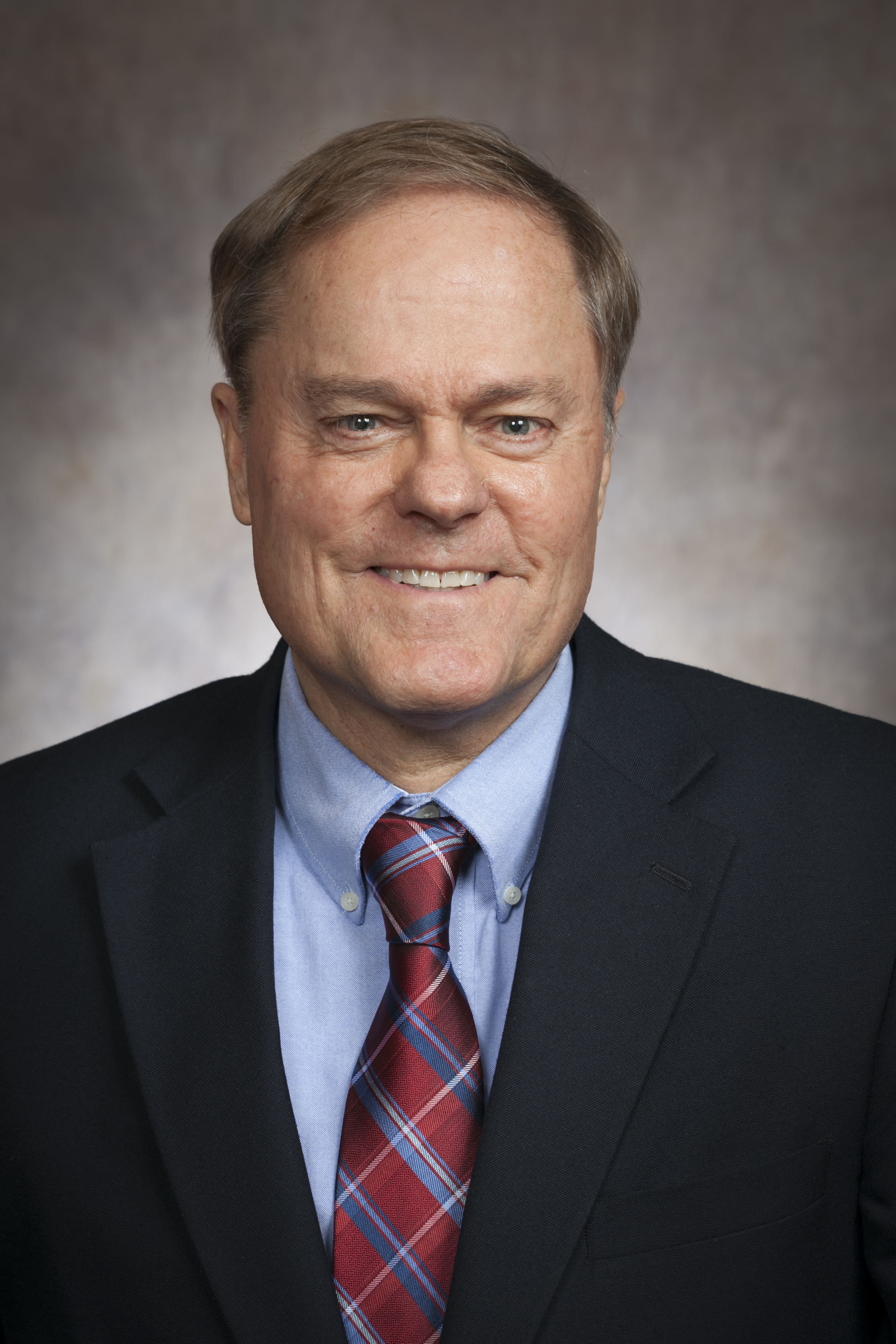



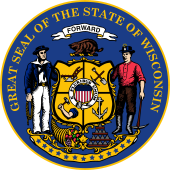

|
|
Quick Fact |
|
In 1956, local railroad history aficionados organized to
start a museum dedicated to American railroad history,
and two years later, Congress recognized the newly
established museum as the National Railroad Museum. The
facility currently serves over 100,000 visitors annually
from the banks of the Fox River in Ashwaubenon.
|
|
Helpful Links |
|





|
|
|
Reestablishment of the Conservation Corps Passed by
Assembly |
|
Last week, a bill Iíve authored with Representative
Jeffery Mursau (R-Crivitz) to revive the Wisconsin
Conservation Corps was passed by the Assembly and is now
available for scheduling in the Senate. This bill (Assembly
Bill 688),
which is sponsored by a bipartisan group of legislators
including Representative Joel Kitchens (R-Sturgeon Bay),
creates a program in which young adults can learn
valuable work and life skills while protecting and
providing access to Wisconsin's natural resources.
Whether theyíre just out of college or failed to
complete high school, too often young adults are having
trouble finding their way in todayís world. The
Wisconsin Conservation Corps offers these lost young
adults the opportunity to have memorable outdoors
experiences while gaining a new respect for our stateís
natural resources and learning many of the job and life
skills they need build a productive path for their
future. Some of the benefits a young adult will have
might range from finishing a GED or learning about
ecosystem management to understanding the importance of
showing up on-time and taking pride in their work. Furthermore, they may even connect with a future
educational or employment opportunity that will open
their door to the future.
Additionally, countless projects on public lands are yet
to be completed due to a lack of available funding or
manpower. If this bill is passed, the Wisconsin
Conservation Corps would cut into this backlog and make
necessary updates on public lands throughout the state
which would not only be a huge benefit to the stateís
natural resources and wildlife, but also the residents
and tourists who spend time on public lands.
The Wisconsin Conservation Corps (WCC) was active from
1983 to 2003. Under this bill to revive the WCC, work
crews would consist of members between the ages of 16
and 25 with preference given to young adults from an
impoverished background or with no post-secondary
education. Projects could be completed on public and
tribal lands throughout the state, with some of these
projects including fencing, invasive species management,
park maintenance, stream bank stabilization, and trail construction or
rehabilitation.
Read more about this plan to revive the Wisconsin
Conservation Corps on Wisconsin Public Radioís website
at
this link. You can also read a column from the Green
Bay Press-Gazette Editorial Board endorsing this
proposal by clicking on below:

|
|
Workforce Development Efforts Successful, But Not
Finished |
|
2017 was a great year for job growth in Wisconsin. By
the end of the year, more men and women were part of
Wisconsinís workforce than ever before. This job growth
is not isolated, as 70 of Wisconsinís 72 counties are at
full employment (which is characterized by an
unemployment rate below 4%) and unemployment claims have
hit a 30-year low.
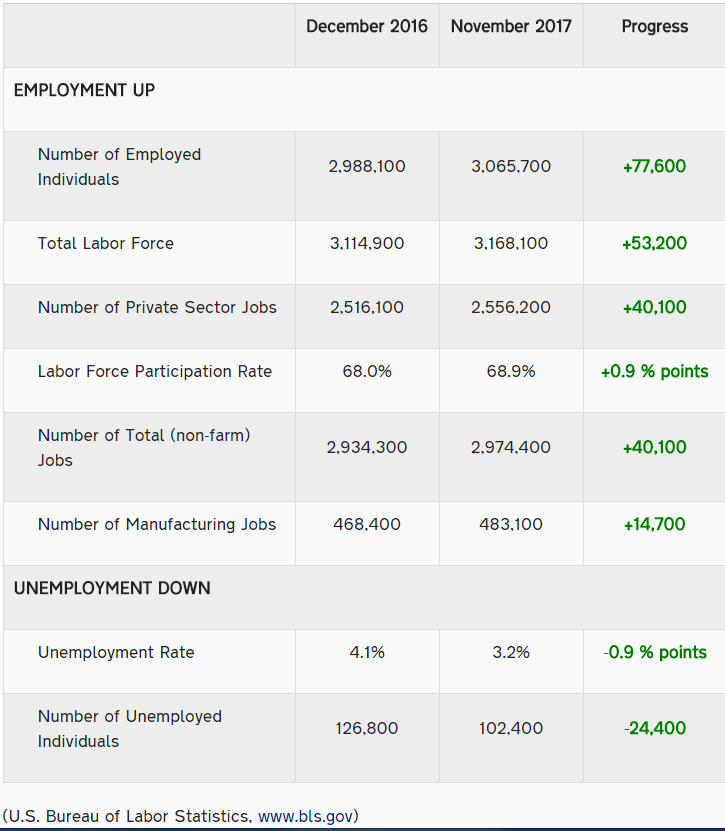
Despite these positive strides, more must be done help
grow Wisconsinís workforce. One area the state needs to
focus on is workforce participation. According to
JobCenterOfWisconsin.com,
a website which I drafted the enabling legislation for,
there are nearly 100,000 jobs that still need to be
filled. Throughout the state,
there are populations of people in similar situations
who have been left behind as Wisconsinís workforce has
sped ahead. This session, Iíve authored and sponsored
legislation to try and help these populations. Iíll
overview three of these cases below:
-
Some young adults in Wisconsin have either left the
state to find employment or are unemployed or
underemployed in Wisconsin. A proposal I discussed
above to revive the Wisconsin Conservation Corps
would develop these young adults who may have
troubles finding employment while encouraging others
find employment in the state.
-
Many veterans have been left behind in Wisconsinís
workforce, which is why Iím working with
Representative Cody Horlacher (R-Mukwonago) to
Hire Heroes.
This bill, which has already passed the Assembly,
will expand Wisconsinís transitional jobs for
veteransí program to ensure that all veterans are
eligible to show their skills to potential employers
and ease their transition from military service to
the civilian workforce.
-
People with disabilities are often left out of the
workforce despite the fact that not only are many
able to work, but they have a desire to work.
Assembly Bill 625,
authored by Senator Tom Tiffany (R-Hazelhurst) and
Representative James Edming (R-Glen Flora) and
co-sponsored by a bipartisan group of legislators
including myself, encourages state agencies to
better coordinate and share resources to bring
people with disabilities into competitive integrated
employment. Under this model, adults with
disabilities would work alongside other employees
throughout their community.
If passed, these bills will help to improve Wisconsinís
workforce by bringing more diversity of thought into the
workplace while helping to increase our workforce
participation rate. However, this is only part of the
solution. A lot of great things have been done for
Wisconsinís workforce, but more needs to be done.
Increasing workforce participation and retaining our
current workforce must remain a focus of our state and
local governments and businesses for 2018 and beyond.
To learn more about our stateís workforce and
economy, visit the Wisconsin Department of Revenueís
website and watch their new video series titled
"Wisconsin's Economy Today" at
this link.
|
|
Progress on Other Bills I've Authored |
|
Itís been a busy few weeks, and apart from the bill to
reestablish the Conservation Corps, many other bills
Iíve authored have seen progress. Below is an overview
of some of that progress:
-
Senate Bill 435:
Named Save Our Pets, this bill
allows first
responders to provide care to our pets in emergency
situations like hous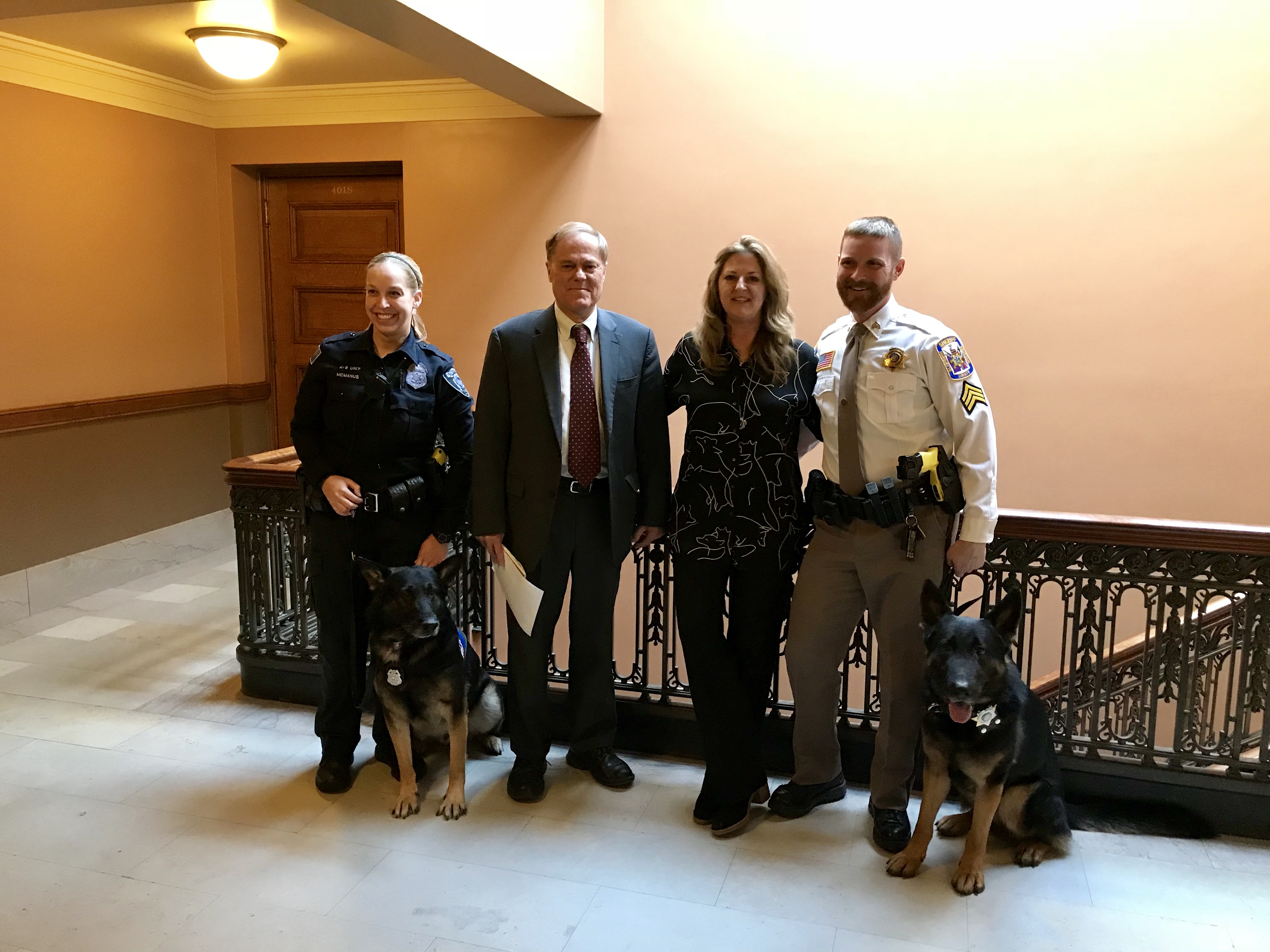 e
fires and car accidents. On the 4th, a Senate
Committee held a public hearing on the bill where I
met Officer Holly McManus and K9 Officer Bane of the
St. Francis PD, Deputy Brian Noll and K9 Officer
Blackjack of the Marquette County Sheriffís
Department, and Lisa Peters of the Fox Valley Animal
Referral Center (pictured to the right), all of
which came to testify in support of the bill. CBS 58
did a story on the hearing which can be seen at
this link.
Last week, the Senate approved this bill on a voice
vote, but it still needs to be voted out of
committee in the Assembly. e
fires and car accidents. On the 4th, a Senate
Committee held a public hearing on the bill where I
met Officer Holly McManus and K9 Officer Bane of the
St. Francis PD, Deputy Brian Noll and K9 Officer
Blackjack of the Marquette County Sheriffís
Department, and Lisa Peters of the Fox Valley Animal
Referral Center (pictured to the right), all of
which came to testify in support of the bill. CBS 58
did a story on the hearing which can be seen at
this link.
Last week, the Senate approved this bill on a voice
vote, but it still needs to be voted out of
committee in the Assembly.
-
Assembly Bill 618:
This bill, authored by the Joint Legislative Audit
Committee which I Co-Chair,
will cleanup some of
the unnecessary but statutorily required audits the
Audit Bureau must perform. Freeing up Audit Bureau
resources by removing the requirement for these
audits will allow the Committee to request
evaluations for other programs and agencies that are
often overlooked, helping to ensure widespread
accountability throughout our government. This bill
was passed by both houses of the Legislature last
week and is now available to be signed into law.
-
Assembly Bill 355:
Study after study has concluded that children
exposed to abuse or neglect are at a greatly
increased risk for future emotional or behavioral
problems. In 2015, there were over 3,000
substantiated reports of child neglect in Wisconsin,
but because of gaps in our current system, children
are often forced to stay in neglectful situations
for months before they receive help.
Iíve
authored this bill to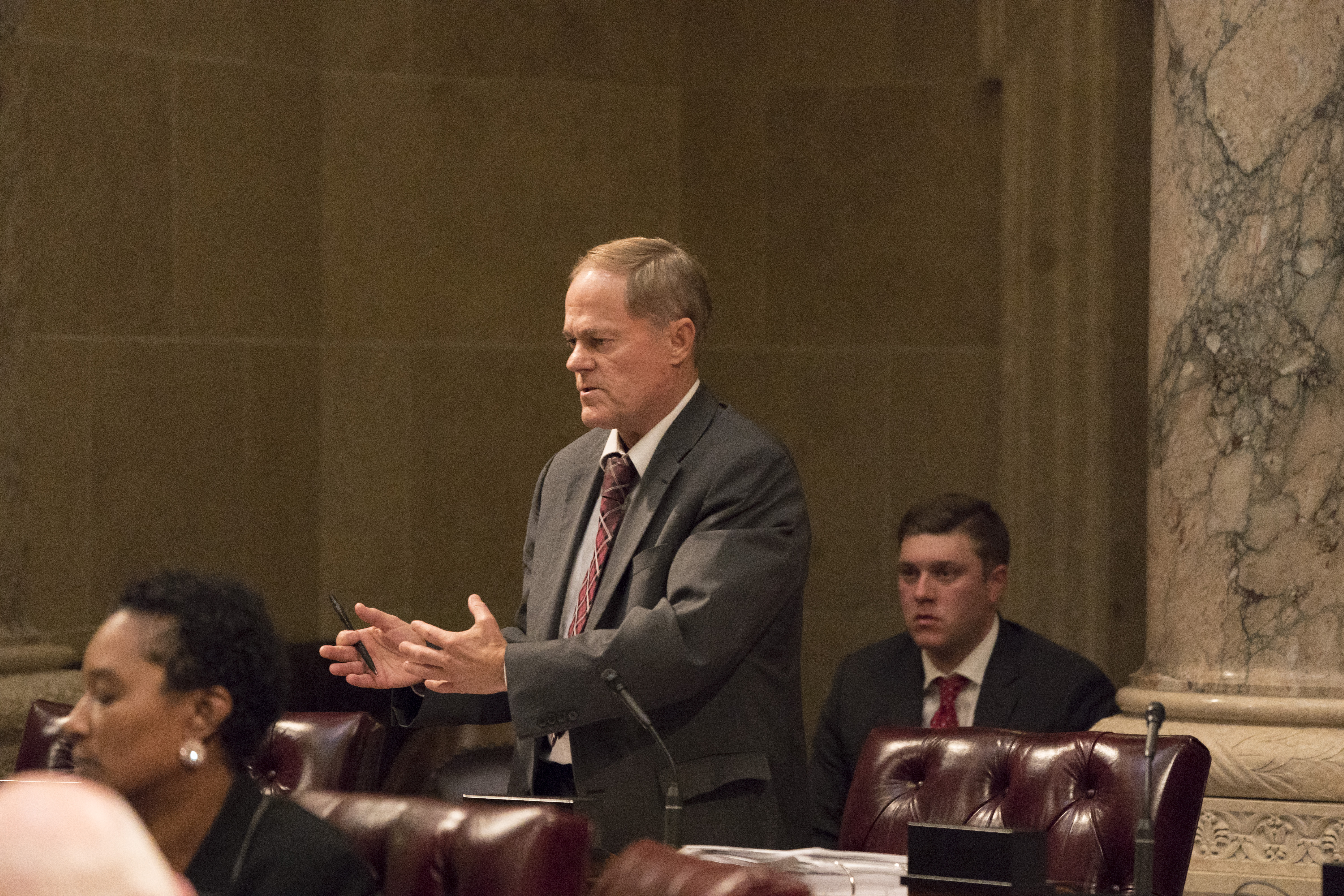 try and combat this problem by closing the loophole
that puts these kids at risk and protecting more
vulnerable children from repeated acts of neglect
and drug-endangered environments.
The Assembly passed this bill last week and it is
now available for scheduling in the Senate.
try and combat this problem by closing the loophole
that puts these kids at risk and protecting more
vulnerable children from repeated acts of neglect
and drug-endangered environments.
The Assembly passed this bill last week and it is
now available for scheduling in the Senate.
-
Senate Bill 48: The Leading on Lead Act
provides a funding mechanism for communities to
address lead contamination in drinking water. This
bill allows a municipal government to pass an
ordinance to ask the Public Service Commission for
the authority to use ratepayer dollars for a low or
no-interest loan or an up to 50% grant for private
property owners to replace their lead service lines.
The bill was passed in October by the Senate and
November by the Assembly, but as a result of a
conflicting Assembly amendment, the Senate voted for
final passage last week. The Leading on Lead Act now
heads to the Governor to be signed into law. Read
more about this bill on WPRís website at
this link.
-
Senate Bill 646:
This bill helps
Wisconsin to open the door to a new pro-business and
pro-environment industry which converts post-use,
non-recycled plastics into valuable commodities such
as oil, gasoline, or chemicals. This bill will
create markets for what would otherwise be waste,
helping businesses to recuperate costs and helping
local governments to shrink the size of their
landfills. This process also has low air emissions
because the process takes place in an
oxygen-deficient or oxygen-absent atmosphere.
During recent public hearings, I heard from leaders
of out-of-state companies in this industry who are
ready to come to Wisconsin upon passage of this
bill, which would create jobs and spur tens of
millions of dollars of economic development.
Both Senate and Assembly Committees have now held
public hearings and recommended the bills for
passage.
|
|
Audit
of State Fair Park Released |
|
For the first time in ten years, an audit of State Fair
Park was released. The agency that runs State Fair Park
oversees a $20 million budget and a workforce of 2,000
employees during the peak season, and has the
responsibility of administering the annual State Fair
among other functions. The Legislative Audit Bureau
found that the operations of State Fair Park were
consistent with several best practices in the industry,
but on nine occasions since 2013, the management failed
to follow proper procurement procedures.
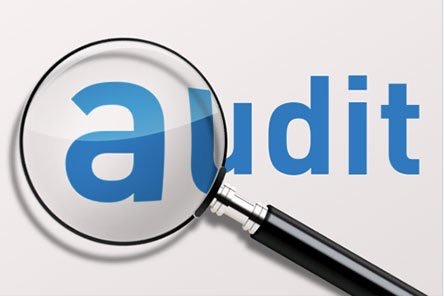
While Iím glad that this audit shows that the Wisconsin
State Fair is running in a safe and satisfying manner,
the financial management of State Fair Park is clearly
deficient. The recommendations of this audit will help
to strengthen the oversight and procedures surrounding
procurement and contracting practices. This will aid in
avoiding potential financial mismanagement in the
future.
The full audit report on State Fair Park and other
previous audits can be found on the
Audit Bureauís
website.
You can also learn more about the audit by reading
this article
from the Milwaukee Journal Sentinel.
|
|
Thanks for Reading! |
|
Feel free to contact my office with any questions or
concerns you may have, and be sure to
visit
my website and connect with me on
Facebook,
Twitter and
Instagram.

Senator Robert Cowles
|
|
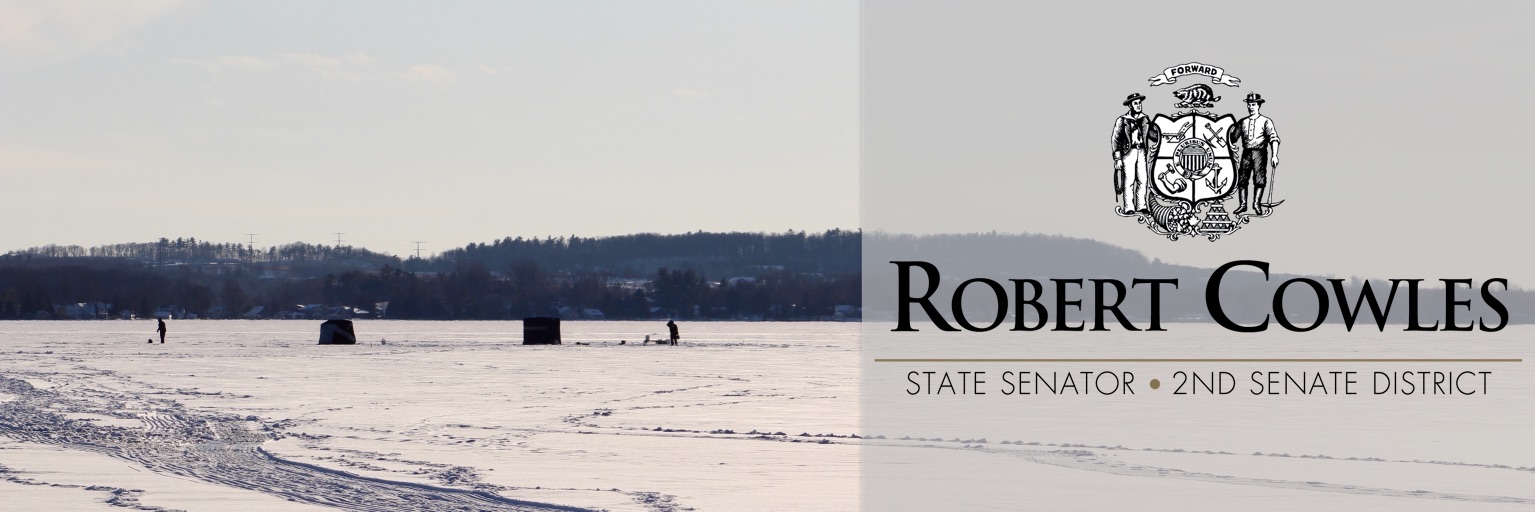








 try and combat this problem by closing the loophole
that puts these kids at risk and protecting more
vulnerable children from repeated acts of neglect
and drug-endangered environments.
try and combat this problem by closing the loophole
that puts these kids at risk and protecting more
vulnerable children from repeated acts of neglect
and drug-endangered environments. 



